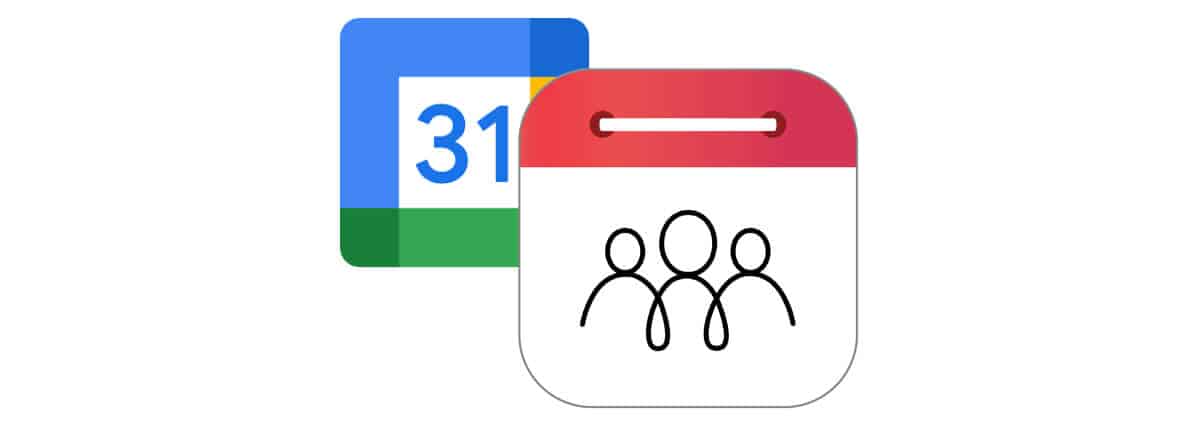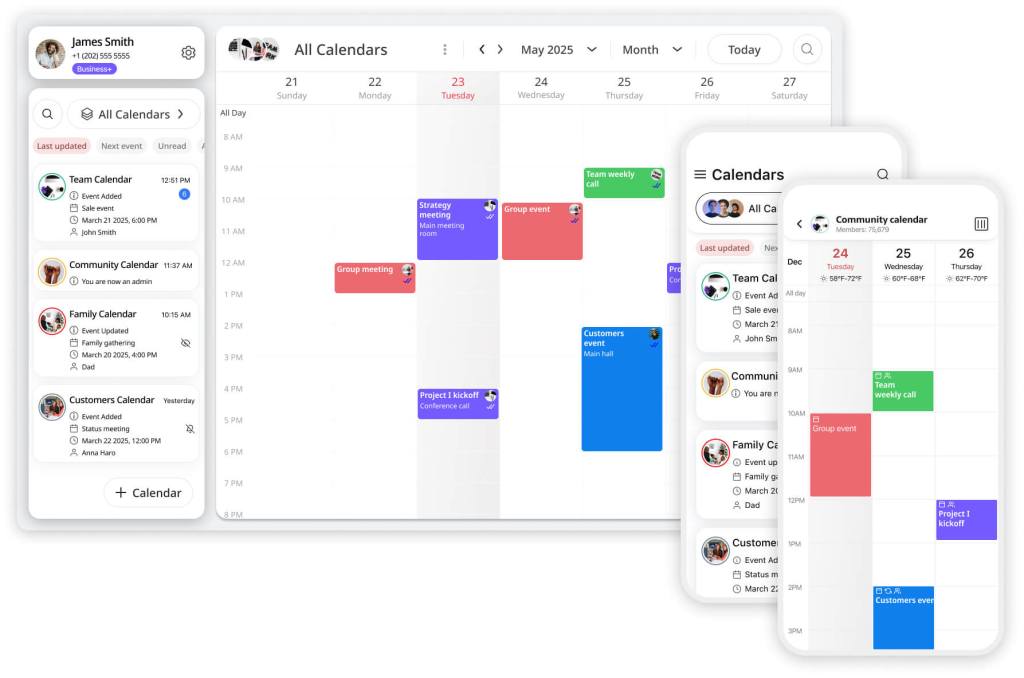
Google Calendar is undeniably one of the most popular and widely used calendar apps worldwide. Developed by Google, it has garnered a massive user base due to its extensive features and accessibility. As a web-based application, it allows users to manage their schedules, events, and appointments with ease. Still, there are many who look for a Google calendar alternative. This post will address this topic.
With its intuitive interface and seamless integration with other Google services, Google Calendar has become a go-to choice for individuals, businesses, and organizations alike. Users can create, edit, and organize events, set reminders, and invite others to collaborate on their calendars. The ability to view and manage calendars across various devices, including computers, smartphones, and tablets, further adds to its convenience and versatility.
One of the contributing factors to Google Calendar’s widespread adoption is its availability as a pre-installed app on Android devices. As Android holds a significant market share in the mobile operating system landscape, users often find Google Calendar readily accessible on their Android smartphones or tablets from the moment they set up their devices.
Google Calendar’s popularity is also fueled by its integration with other Google services. Seamless synchronization with Gmail allows users to turn emails into events and seamlessly manage their schedule within their inbox. Integration with Google Meet enables easy scheduling of online meetings, while Google Drive integration allows for attaching relevant files and documents to events.
The main drawbacks of Google Calendar
While the above is being said, it’s important to be aware of Google Calendar drawbacks, that may hinder your scheduling experience. The most significant drawback is the sharing and invite process. In Google Calendar, inviting participants to events requires manually adding a list of participant emails for each event. This manual approach can be time-consuming and prone to errors, making coordination with extended family members, colleagues, or external contacts a tedious task.
Related to that, another aspect to consider is the limitation around sync and real-time updates. While Google Calendar offers basic synchronization across devices, changes made to the calendar may not always sync seamlessly in real-time and come without a proper notification. This can lead to discrepancies in scheduling, as family members or team members may not have immediate access to the most up-to-date information.
Another crucial limitation of Google Calendar’s native sharing is its poor mobile support for publicly shared schedules. While you can view shared calendars on the web, accessing these shared schedules and receiving push notifications reliably on mobile devices (where most scheduling happens) remains a significant challenge for recipients, forcing them to constantly check a web view.
This experience is an outcome of the fact that Google Calendar is built on a traditional calendar concept where the calendar is primarily seen as an individual tool. Therefore, events are treated as private to the user, and sharing them is done on a case by case basis. However, in today’s interconnected world, calendars are often tied to multiple outside schedules. Family members, teams, and organizations require a more collaborative and synchronized approach to scheduling, where everyone can easily access and contribute to a shared calendar that reflects their collective activities and commitments.
What about using Google Calendar as a shared calendar?
While Google Calendar does offer the option to create a shared calendar, it is important to note that it was not primarily designed as a dedicated shared calendar platform. As a result, using Google Calendar as a shared calendar may come with certain limitations and drawbacks that can hinder the overall experience.
Google Calendar, as a shared calendar, faces significant challenges when it comes to accurately and promptly indicating changes. When multiple users modify the calendar, notifications and updates may not be conveyed in a clear manner or real-time. This can result in confusion and communication gaps, particularly during scheduling conflicts or unexpected adjustments.
Moreover, Google Calendar’s shared calendar feature lacks extensive customization capabilities for members. For instance, users may be unable to assign distinct colors or incorporate personalized photos for individual members or events. This limitation hampers the visual differentiation of different calendar members and activity types, impeding smooth and efficient navigation of the calendar.
All those drawbacks of Google Calendar are the reason for why many people look for Google Calendar alternatives.
How can GroupCal serve as an alternative to Google Calendar?

GroupCal is a calendar app that focuses on enhancing collaboration and coordination among individuals and groups. Unlike traditional calendar apps, GroupCal places a strong emphasis on shared calendars, enabling users to easily collaborate with family members, friends, colleagues, and various other groups. By providing a platform for shared scheduling, GroupCal facilitates seamless communication and synchronization of events, ensuring that everyone stays on the same page.
Using GroupCal doesn’t mean one needs to abandon their Google Calendar. On the contrary – with GroupCal, users can seamlessly integrate their Google Calendar accounts, enabling them to perform all the essential functions they are accustomed to in Google Calendar. Such as viewing their Google schedule, adding and editing events, etc.
While linked, your Google Calendar is no longer restricted to Google’s traditional event-by-event invitation system. Instead, you can share your linked Google Calendar with a group via a single link or member list, just like any native GroupCal calendar. You can also invite specific people using their phone number to join your Google calendar and view its events. This transforms your personal calendar into a fully real-time, shared schedule, ensuring family members or team members receive all event updates instantly without needing individual event invites.
However, GroupCal goes beyond the capabilities of traditional calendar apps by providing additional features and enhancements that refine collaboration, customization, and synchronization:
- Transform and Share personal Calendars: Easily link your Google Calendar (along with Outlook, and iCloud) and instantly share it with a GroupCal link or member list, bypassing the need for individual event invitations. This ensures real-time synchronization of your personal schedule with your selected groups.
- Dedicated Shared Calendars for Every Topic: Create separate calendars for different groups and topics (Family, Work, Community, etc.). Each calendar has its own member list, ensuring targeted sharing and organization.
- Real-Time, Instant Synchronization: Every event added or updated to a shared calendar (or shared personal calendar) is automatically synced with the entire group in real-time, accompanied by notifications.
- Visual Status and Updates: Adopting a chat app-like behavior, GroupCal highlights changes in the dedicated calendar list section, ensuring you are immediately informed and in sync with the evolving schedule.
GroupCal offers a compelling alternative to Google Calendar. It’s a seamless upgrade that transforms your personal calendar into a fully shareable, collaborative group calendar, effectively addressing the limitations of traditional calendar apps by providing users with a feature-rich and user-friendly platform for efficient scheduling and collaboration.